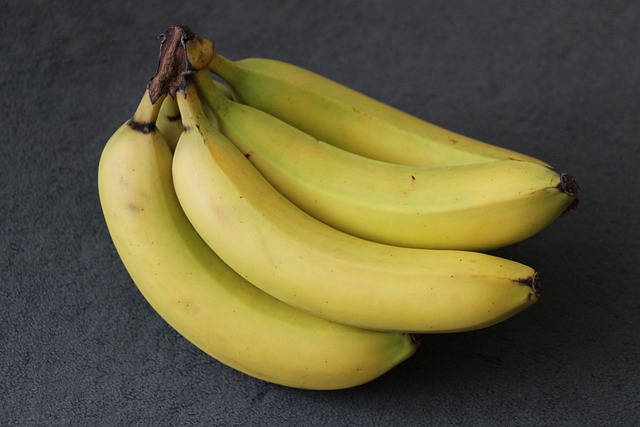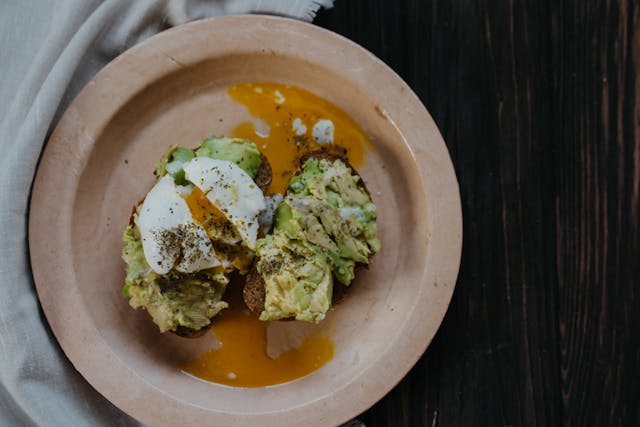
Bananas are often considered nature’s perfect snack. Packed with essential nutrients, they are delicious, portable, and versatile. But as with anything, too much of a good thing can sometimes have drawbacks. While bananas are a healthy choice for most people, they can cause some side effects if consumed in excess or under specific conditions.
Let’s explore the potential side effects of bananas, who should be cautious, and how to enjoy this nutritious fruit without worry.
The Benefits of Bananas: A Quick Recap
Before diving into potential side effects, let’s acknowledge why bananas are so popular:
- Rich in Nutrients: Bananas are an excellent source of potassium, vitamin B6, fiber, and natural sugars.
- Energy Boosters: Perfect for pre- or post-workout snacks.
- Easy on the Stomach: Bananas are often recommended for digestive issues like acid reflux or upset stomach.
However, as beneficial as bananas are, they’re not entirely free of side effects.
1. High Potassium Levels: Too Much of a Good Thing
The Science
Bananas are famously rich in potassium, a mineral vital for muscle function, heart health, and blood pressure regulation. A medium banana contains about 9% of your daily potassium requirement.
The Side Effect
Consuming excessive amounts of bananas can lead to hyperkalemia, a condition caused by elevated potassium levels in the blood. Symptoms include:
- Irregular heartbeat
- Weakness
- Nausea
Who Should Be Careful?
People with kidney issues should monitor their potassium intake, as their bodies may struggle to process excess potassium.
2. Potential Weight Gain with Overconsumption
The Science
Bananas are calorie-dense compared to some other fruits, with an average banana containing about 105 calories and 14 grams of natural sugar.
The Side Effect
While bananas are healthy, eating too many can contribute to weight gain if not balanced with other foods. For example, consuming five bananas adds over 500 calories to your daily intake, which can lead to a calorie surplus.
Pro Tip
Enjoy bananas as part of a balanced diet and pair them with protein or healthy fats to maintain a stable energy level.
3. May Cause Digestive Issues in Some
The Science
Bananas are a great source of dietary fiber, with a medium banana offering about 3 grams. While fiber is essential for digestive health, consuming too much fiber too quickly can lead to bloating, gas, or diarrhea.
The Side Effect
Some people experience constipation or bloating, particularly when consuming underripe bananas, which are higher in resistant starch.
How to Avoid It
- Stick to ripe bananas if you’re prone to digestive issues.
- Start with one banana per day and see how your body responds.
4. Allergic Reactions: Rare but Possible
The Science
Some people may be allergic to proteins found in bananas. This is more common in individuals with latex allergies, as bananas contain similar proteins.
The Side Effect
Symptoms of a banana allergy can include:
- Itchy mouth or throat
- Swelling of the lips or tongue
- Hives or skin rash
What to Do
If you suspect an allergy, consult a doctor and avoid bananas until tested.
5. Impact on Blood Sugar Levels
The Science
Bananas have a medium glycemic index (GI), meaning they can cause moderate blood sugar spikes. While the fiber in bananas helps slow sugar absorption, overconsumption can still lead to elevated blood sugar levels.
The Side Effect
For individuals with diabetes or prediabetes, eating too many bananas without protein or fat can cause blood sugar fluctuations.
Pro Tip
Pair bananas with peanut butter, yogurt, or nuts to minimize the impact on blood sugar.
6. Dental Health Concerns
The Science
The natural sugars in bananas can stick to your teeth, potentially leading to cavities if proper oral hygiene isn’t maintained.
The Side Effect
Frequent banana consumption without brushing can contribute to tooth decay.
How to Avoid It
- Rinse your mouth or brush your teeth after eating bananas.
- Limit banana snacks close to bedtime.
7. Headaches for Sensitive Individuals
The Science
Bananas contain tyramine, a compound that can trigger headaches in some people, especially those prone to migraines.
The Side Effect
Eating ripe bananas in large quantities may exacerbate migraines.
What to Do
If you notice headaches after eating bananas, reduce your intake and monitor your symptoms.
8. Can Bananas Be Toxic?
The Science
Some myths suggest that eating too many bananas could be fatal due to potassium overdose. While hyperkalemia is real, you’d need to eat an extraordinarily high number of bananas—about 400 in a short time—for it to become life-threatening.
The Side Effect
For the average person, eating bananas in moderation poses no risk of toxicity.
Who Should Avoid Bananas or Limit Their Intake?
While bananas are safe for most people, these groups should exercise caution:
- People with Kidney Problems: Due to potassium concerns.
- Diabetics: Monitor portion sizes to avoid blood sugar spikes.
- Those with Latex Allergies: Higher risk of allergic reactions.
- Individuals on Certain Medications: Potassium-sparing diuretics or beta-blockers can interact with high potassium intake.
How to Enjoy Bananas Safely
Here’s how you can reap the benefits of bananas while avoiding side effects:
- Stick to 1–2 Bananas a Day: This is a healthy, balanced amount for most people.
- Pair with Protein or Fats: Combine bananas with foods like almond butter or yogurt to stabilize blood sugar levels.
- Opt for Ripe Bananas: They’re easier to digest and less likely to cause bloating.
- Practice Good Oral Hygiene: Brush or rinse after eating to protect your teeth.
The Bottom Line
Bananas are a nutritious and versatile fruit, but like anything, they should be consumed in moderation. While they offer numerous health benefits—like providing energy, improving digestion, and supporting heart health—overindulgence or specific health conditions can lead to side effects.
By staying mindful of your body’s needs and pairing bananas with other foods, you can enjoy all the benefits this superfruit has to offer without worry. So, go ahead and enjoy that banana—but keep it balanced for the best results!
Similar Articles:

